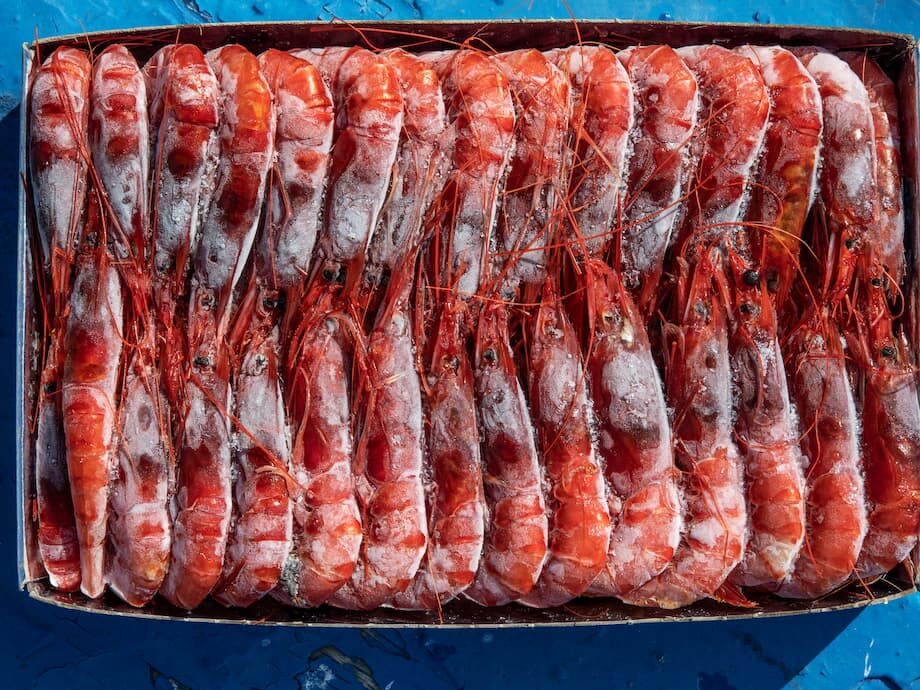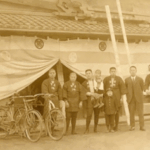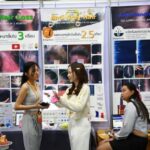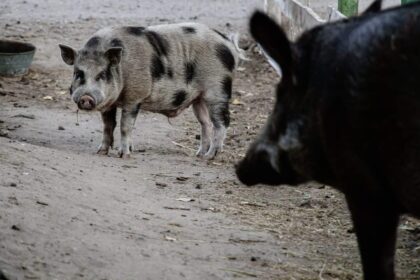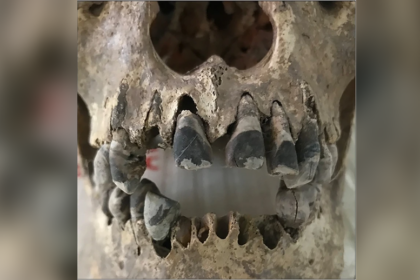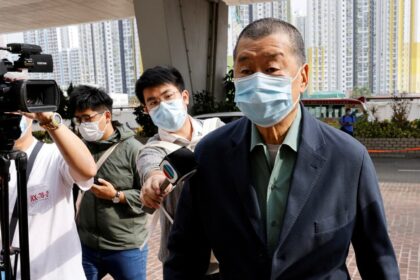A contamination scare that crossed oceans
It began with routine radiation screening at US ports. By early autumn, frozen shrimp processed in an industrial estate west of Jakarta had been recalled across at least a dozen US states after inspectors detected traces of Cesium-137, a radioactive isotope associated with nuclear accidents and weapons testing. The discovery triggered sweeping surveys inside Indonesia, where a government task force found contamination at 22 facilities in the Modern Cikande Industrial Estate and launched a broad cleanup while assuring foreign buyers that food exports would be safe.
- A contamination scare that crossed oceans
- What triggered the alarms at US ports
- What investigators found in Cikande
- How shrimp became radioactive
- Health risks and what the radiation numbers mean
- Government response and cleanup
- Trade and supply chain impact
- What investigators still need to confirm
- What to Know
Measurements in the affected shrimp samples were far below US intervention thresholds, so there was no immediate danger to shoppers. Even so, companies, including major retailers, pulled products from shelves while investigators traced the contamination back to the Cikande area in Banten province, roughly an hour from the capital. Indonesian authorities deployed radiation survey teams, restricted access points, scanned vehicles, and set up medical checks for workers and residents near the estate. Nine people tested positive for exposure, were examined in hospital, and were cleared to go home.
Investigators say the likely source was a steelmaker that melts imported scrap metal, located within the same zone and less than two kilometers from the shrimp packer PT Bahari Makmur Sejati (BMS Foods). Indonesia operates no nuclear power plants and has no weapons program. Officials suspect Cesium-137 entered via contaminated scrap, and possibly through shipping containers used for export. The government suspended scrap metal imports and designated the steel plant grounds, PT Peter Metal Technology, as an isolation site for contaminated goods.
What triggered the alarms at US ports
In July, radiation portal monitors used by US Customs and Border Protection flagged several containers from Indonesia. In August, the US Food and Drug Administration sampled a shipment of frozen breaded shrimp processed by BMS Foods and detected Cesium-137. Advisories instructed distributors and retailers to dispose of affected lots. Recalls extended to shrimp sold in stores across Alabama, Arkansas, Florida, Georgia, Kentucky, Louisiana, Missouri, Mississippi, Ohio, Oklahoma, Pennsylvania, Texas, and West Virginia.
The FDA stressed that the detected activity levels were well below the agency Derived Intervention Level of 1,200 becquerels per kilogram for Cesium-137, and that there was no acute hazard from a single meal. The health concern centers on repeated exposure over time rather than a one-off intake.
In a public notice, the FDA explained the risk of long term, low dose exposure to radioactive contaminants in food.
“The primary health effect of concern following longer term, repeated low dose exposure is an elevated risk of cancer, resulting from damage to DNA within living cells of the body.”
Laboratory results connected to the case reported Cesium-137 at about 68 Bq/kg in one shrimp sample and 732 Bq/kg in a clove sample that did not enter US commerce. In October, using an authority in the Food Safety Modernization Act, the FDA began requiring import certification for shrimp and certain spices from Java and Lampung province. Two Indonesian firms, BMS Foods and Natural Java Spice, were placed on import alert pending evidence that shipments meet US standards.
What investigators found in Cikande
Indonesia dispatched radiation survey teams across the Modern Cikande Industrial Estate in Serang Regency, Banten, about 60 to 70 kilometers west of Jakarta. At least 22 facilities registered contamination. BMS Foods undertook cleaning and was later cleared by the nuclear regulator to resume operations, according to the task force. Authorities tightened access to the area, scanned vehicles for trace radioactivity, and established an isolation facility on the grounds of PT Peter Metal Technology to hold contaminated materials.
Medical teams screened workers and nearby residents. Nine people tested positive for Cesium-137 exposure, were examined in hospital, and were cleared to return home. Officials said residents living in the most affected locations would be relocated while decontamination progressed.
Environment Minister Hanif Faisol said residents in high exposure zones would be moved until cleanup is complete, underscoring that public welfare guides the response.
“The safety of the residents is the top priority.”
Task force spokesperson Bara Hasibuan said investigators were focusing on imported scrap metal as the likely source and that restrictions on those imports would apply while inspections continue.
“Scrap metal imports are the likely source of contamination, and the government will immediately restrict them.”
Officials also said 14 shipping containers of scrap that measured positive for Cesium-137 were found at Tanjung Priok port in North Jakarta, evidence that some contamination may be introduced via containers, not only from local emissions near the estate.
How shrimp became radioactive
Cesium-137 is a byproduct of nuclear fission with a half life of about 30 years. It appears in sealed industrial gauges and some medical devices. When an unidentified source slips into the global scrap metal trade, it can be smelted unknowingly. Cesium chloride, a common form, vaporizes at furnace temperatures and can disperse in flue gas as fine particles. That dust can settle on roofs, ducts, yards, and equipment, and it can be drawn indoors by ventilation systems.
Investigators say the BMS Foods packaging plant sits less than two kilometers from the suspected steelmaker. If radioactive dust left the smelter and became airborne, it could have entered the food processing facility and contaminated surfaces and packaging lines. Shrimp exposed to that dust, or packed in contaminated containers, would register radioactivity even if the seafood itself never contacted radioactive material during farming.
Scrap metal and orphan sources
Regulators around the world warn about orphan sources, the term for radioactive devices that fall out of control and end up in the waste stream. Radiation portal monitors at borders and factory gates exist to catch them, but gaps remain. When contaminated scrap is melted, the metal can be unusable, and the slag and filters become radioactive waste. If fumes and dust travel beyond the smelter stack, nearby businesses can be exposed.
Survey teams in Indonesia are taking air, soil, water, and surface wipe samples to map hot spots and trace dust pathways across the estate. They are also examining whether shipping containers that previously carried contaminated scrap were reused for food, which could transfer trace cesium to cargo walls, pallets, or outer packaging.
Health risks and what the radiation numbers mean
Food radiation tests are often reported in becquerels per kilogram. One becquerel is one atomic decay per second. For Cesium-137, the US threshold for taking action is 1,200 Bq/kg, a level set to keep lifetime risk low. The shrimp sample linked to the recalls measured far below that line, so there is no short term hazard from a single serving.
Cesium-137 behaves in the body somewhat like potassium. The human body eliminates most ingested cesium, with a biological half life near 110 days, though a small fraction persists in soft tissue. Cesium is more biologically active than potassium-40, a natural radioisotope present in many foods. This is why regulators do not dismiss man made cesium findings even when numbers are modest.
For consumers, the key risk driver is repeated exposure. Low level contamination, if eaten day after day, raises cumulative dose. This is why authorities recalled affected lots and tightened import controls even though initial lab values were not high.
What consumers can do right now
Check product codes and lot numbers against recall lists and follow retailer guidance for refunds. Verify country of origin on packaging. If a product comes from an unaffected facility or region, it is safe to use as intended. If in doubt and information is unavailable, discarding a product is the prudent choice. Cooking does not remove Cesium-137.
Indonesian officials say seafood exports remain safe because contaminated facilities are being cleaned and shipments are being certified before departure. The minister in charge of fisheries, Sakti Wahyu Trenggono, said controls are stricter and cooperation with US regulators is active.
“The shrimp being shipped are controlled and free from radioactive material.”
Government response and cleanup
Indonesia created a Cs-137 task force led by the Coordinating Ministry for Food Affairs. The Cikande industrial estate was designated a serious incident zone, giving authorities a mandate to cordon off areas, move quickly on decontamination, and manage traffic in and out. The nuclear regulator BAPETEN, the research agency BRIN, the Environment Ministry, and national police are coordinating surveys, waste handling, and enforcement.
Decontamination teams are vacuuming and wiping dust from workspaces, bagging contaminated scrap and filters, washing equipment, and removing small hot spots of soil or debris for secure storage at the isolation site. The steel plant’s waste stream is being audited. Workers and residents are being screened and advised on hygiene to reduce the possibility that fine particles resuspend and spread.
To reduce risk at the border, the government has suspended scrap metal imports while it rewrites import conditions. New requirements include radiation portal monitors at factory gates and warehouses and continuous emission monitoring systems on smokestacks to track particulate releases. Officials say import permits will be restored case by case once companies prove they meet radiation safety standards.
Trade and supply chain impact
Shrimp is central to Indonesia export earnings, and the United States is a key buyer. The contamination reports led to returns of some containers, fresh testing, and temporary holds. BMS Foods, whose products were linked to the US detections, says it has cleaned its facility and is working under nuclear agency oversight. Buyers now require documentation that lots are clean before shipping.
US regulators have invoked an authority to require import certification for shrimp and selected spices from parts of Indonesia. Firms with past findings are on import alert until each shipment proves it meets food safety standards. Retailers widened recalls to err on the side of caution, and regulators say no products that tested positive for Cesium-137 have reached US consumers.
What investigators still need to confirm
A clove shipment that tested positive at a US port came from an exporter hundreds of miles from Cikande. Indonesian inspectors say they have not found radiation at that clove plant and are testing re imported samples to verify results. One working hypothesis is that a shipping container previously used for contaminated scrap or other cargo transferred trace cesium to container walls and then to spice sacks.
Investigators are also tracing the logistics of contaminated scrap within Indonesia. The discovery of 14 suspect containers at the main Jakarta port points to a supply chain problem that crosses borders. International cooperation, including technical support from the International Atomic Energy Agency, is in place to locate sources and remove them from circulation.
What to Know
- US screenings detected Cesium-137 in frozen shrimp processed in Indonesia, prompting recalls in more than a dozen states.
- Indonesia found contamination at 22 facilities in the Modern Cikande Industrial Estate west of Jakarta.
- Investigators link the likely source to airborne dust from a steelmaker that smelts imported scrap metal.
- Nine people near the estate tested positive for exposure and were cleared after hospital checks; residents in high exposure spots will be relocated during cleanup.
- BMS Foods conducted decontamination and was later cleared by the nuclear regulator to resume operations under oversight.
- The FDA says detected levels were far below intervention thresholds and pose no acute hazard, but repeated exposure raises long term cancer risk.
- US authorities now require import certification for shrimp and certain spices from parts of Indonesia; firms with findings are on import alert.
- Indonesia suspended scrap metal imports and is mandating radiation portal monitors and emission monitoring at relevant factories.
- Officials found 14 scrap containers contaminated with Cesium-137 at Jakarta’s main port, suggesting a container related pathway for some cases.
- Cleanup and decontamination are ongoing, with international technical support and government assurances that export shipments are safe and verified.


